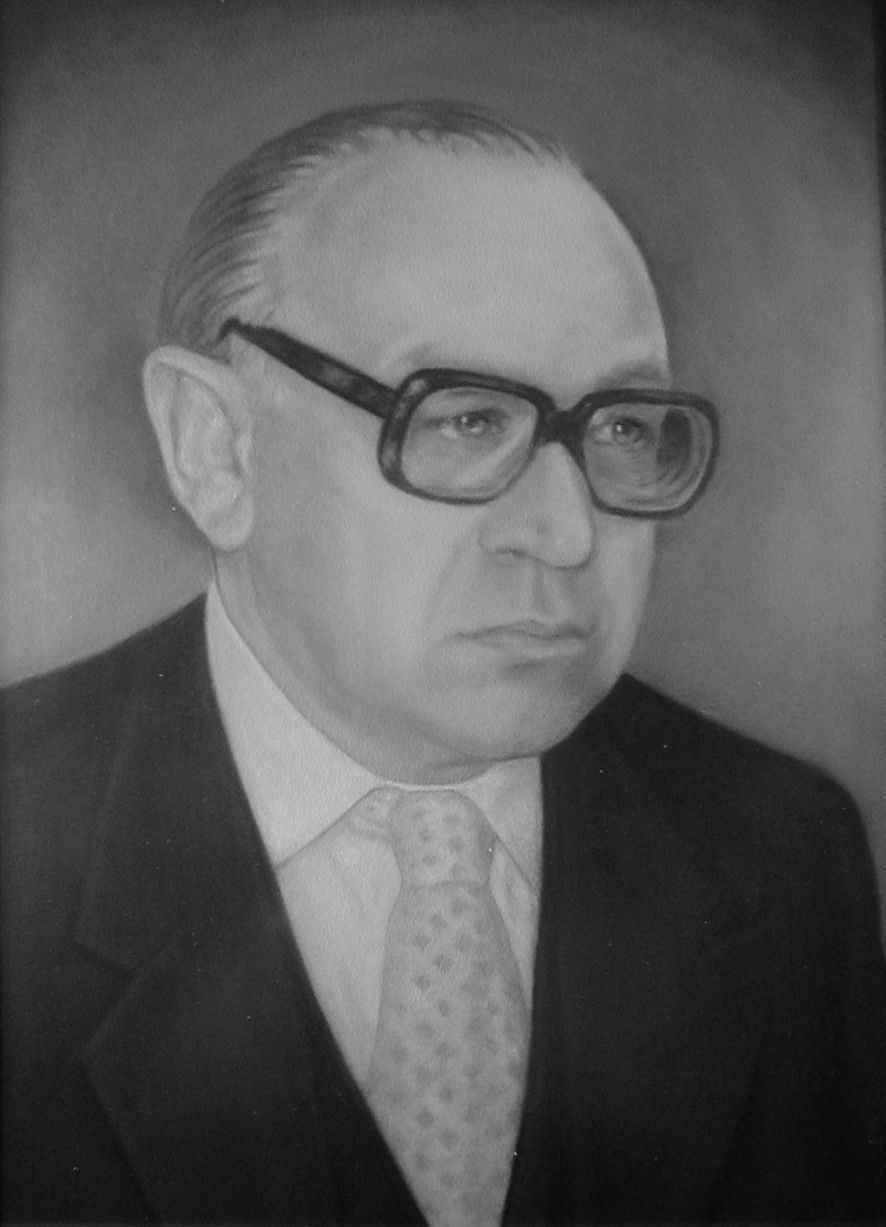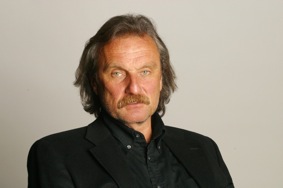|
Anton-Wildgans-Preis
The Anton Wildgans Prize of Austrian Industry is a literary award that was endowed in 1962 by the Federation of Austrian Industry. The prize is worth 15,000 Euro and is granted by an independent jury to a young or middle-aged writer of Austrian citizenship. The award is dedicated to Anton Wildgans who, "like few others, embodied Austrian values in their best sense." Recipients :1962: Fritz Hochwälder :1963: Fritz Habeck :1964: Christine Lavant :1965: Andreas Okopenko :1966: Herbert Zand :1967: Thomas Bernhard :1968: Ilse Aichinger :1969: Herbert Eisenreich :1970: Peter Marginter :1971: Ingeborg Bachmann :1972: Milo Dor :1973: Barbara Frischmuth :1974: Ernst Hinterberger :1975: Christine Busta :1976: György Sebestyen :1977: Peter Henisch :1978: Wolfgang Kraus (author) :1979: Matthias Mander :1980: Josef Winkler :1981: Friederike Mayröcker :1982: Ernst Jandl :1983: Jutta Schutting :1984: Peter Handke (rejected) :1985: Gerd-Klaus Kaltenbrunner :1986: Kurt Klinger ... [...More Info...] [...Related Items...] OR: [Wikipedia] [Google] [Baidu] |
Anton Wildgans
Anton Wildgans (17 April 1881 – 3 May 1932) was an Austrian poet and playwright. He was nominated for the Nobel Prize in Literature four times. Life Born in Vienna, Wildgans studied law at the University of Vienna, from 1900 to 1909, and then practiced as an examining magistrate (Untersuchungsrichter) from 1909 to 1911, before devoting himself to writing full-time."About the author" (p. 199), prefatory note to: Anton Wildgans, "Speech About Austria" (pp. 199–204), in: Diana Mishkova, Marius Turda, and Balázs Trencsényi (Eds.), ''Anti-Modernism: Radical Revisions of Collective Identity''. Budapest: Central European University Press, 2014. . Retrieved via ''Project MUSE'' database, 2017-07-23. His works, in which realism, neo-romanticism and expressionism mingle, focus on the drama of daily life. He twice served as director of Vienna's Burgtheater, in 1921–1922 and 1930–1931. One of his teachers was the Austrian Jewish philosopher Wilhelm ... [...More Info...] [...Related Items...] OR: [Wikipedia] [Google] [Baidu] |
Wolfgang Kraus (author)
Wolfgang Kraus (born 20 August 1953) is a former German football player. The son of the former Frankfurt footballer Willi 'Scheppe' Kraus (born 3 December 1926, died 1993) appeared in 326 Bundesliga matches for Eintracht Frankfurt and Bayern Munich and scored 47 goals. Mostly he was used in the midfield. After his active career he became in November 1986 sports director at Frankfurt but was fired in September 1988 after less than two years. The reason was the sale of star player and idol of the public Lajos Détári. Kraus later stated that he had nothing to do with the sale of Détari. Honours Bayern Munich * Bundesliga: 1979–80, 1980–81 * DFB-Pokal: 1981–82, 1983–84 * European Cup The UEFA Champions League (abbreviated as UCL, or sometimes, UEFA CL) is an annual club football competition organised by the Union of European Football Associations (UEFA) and contested by top-division European clubs, deciding the competit ...: runner-up 1981–82 Eintracht F ... [...More Info...] [...Related Items...] OR: [Wikipedia] [Google] [Baidu] |
Anna Mitgutsch
Anna Mitgutsch (born 2 October 1948) is an Austrian writer and educator. Her name also appears as Waltraud Anna Mitgutsch. Biography She was born in Linz and studied German and English literature at the University of Salzburg. Originally a Roman Catholic Church, Roman Catholic, Mitgutsch converted to Judaism and worked on a kibbutz in Israel. She taught at the Institute for American Studies at the University of Innsbruck and, after going to England, at the University of Hull and University of East Anglia. Next, She taught for a year in Seoul, South Korea and then at colleges and universities in the United States from 1979 until 1985, when Mitgutsch returned to Austria. She lives in Linz and divides her time between that city and Boston. Her first novel was ''Three Daughters'' (Die Züchtigung) (1985), followed by ''The Other Face'' (Das andere Gesicht) in 1986. In 1989, she published ''Exclusion'' (Ausgrenzung) and, in 1992, ''In Foreign Cities'' (In fremden Städten). Her novels ... [...More Info...] [...Related Items...] OR: [Wikipedia] [Google] [Baidu] |
Norbert Leser
Norbert Leser (May 31, 1933 – December 31, 2014) was an Austrian jurist, political scientist and social philosopher best known for his lifelong affiliation with, and critical work on, the Social Democratic Party of Austria and Austromarxism in particular. He was born in Oberwart and died in Eisenstadt. Bibliography *''Zwischen Reformismus und Bolschewismus. Der Austromarxismus in Theorie und Praxis'' (1968) *''Die Odyssee des Marxismus'' (1971) *''Jenseits von Marx und Freud'' (1980) *''Das geistige Leben Wiens in der Zwischenkriegszeit'' (1981) *''Grenzgänger'', 2 vols. (1981–82) *''Sozialphilosophie'' (1984) *''Genius Austriacus'' (1986) *''Salz der Gesellschaft'' (1988) *''Von Leser zu Leser'' (1992) *''Elegie auf Rot'' (1998) *''"... auf halben Wegen und zu halber Tat ...". Politische Auswirkungen einer österreichischen Befindlichkeit'' (2000) *''Gottes Türen und Fenster'' (2001) *''Zeitzeuge an Kreuzwegen'' (2003). *''Der Sturz des Adlers. 120 Jahre österreichisch ... [...More Info...] [...Related Items...] OR: [Wikipedia] [Google] [Baidu] |
Ilse Tielsch
Ilse Tielsch (born Ilse Felzmann 20 March 1929 – 21 February 2023) was an Austrian writer. Life Ilse Tielsch was born on 20 March 1929 in Hustopeče, Czechoslovakia. She was the daughter of Fritz Felzmann (1895–1980), a doctor, writer and musicologist. She grew up in Hustopeče and attended high school in Mikulov. In April 1945, she fled from the approaching front and was accepted into an Upper Austrian farm in Schlierbach . She continued attending high school in Linz, from September 1945 and graduated from high school in Vienna in 1948. In 1949, she became an Austrian citizen, and in 1950, she married the doctor Rudolf Tielsch, They had four children, but lost two of her children early. She studyied newspaper studies and German studies at the University of Vienna The University of Vienna (german: Universität Wien) is a public research university located in Vienna, Austria. It was founded by Duke Rudolph IV in 1365 and is the oldest university in the German-speakin ... [...More Info...] [...Related Items...] OR: [Wikipedia] [Google] [Baidu] |
Christoph Ransmayr
Christoph Ransmayr (born 20 March 1954) is an Austrian writer. Life Born in Wels, Upper Austria, Ransmayr grew up in Roitham near Gmunden and the Traunsee. From 1972 to 1978 he studied philosophy and ethnology in Vienna. He worked there as cultural editor for the newspaper ''Extrablatt'' from 1978 to 1982, also publishing articles and essays in ''GEO'', ''TransAtlantik'' and '' Merian''. After his novel '' Die letzte Welt'' was published in 1988, he traveled extensively across Ireland, Asia, North and South America. This is reflected in his works, where he looks at life as a tourist and believes that good writing needs ignorance, speechlessness, light luggage, curiosity, or at least a willingness not only to judge the world, but to experience it. In 1994 he moved to West Cork, Ireland, as a friend offered to lease him a splendid house on the Atlantic coast for a very affordable rent. In his prose, Ransmayr combines historical facts with fiction. His novels portray cross-borde ... [...More Info...] [...Related Items...] OR: [Wikipedia] [Google] [Baidu] |
Inge Merkel
Inge is a given name in various Germanic language-speaking cultures. In Swedish and Norwegian, it is mostly used as a masculine, but less often also as a feminine name, sometimes as a short form of Ingeborg, while in Danish, Estonian, Frisian, German and Dutch it is exclusively feminine. The feminine name has the variant '' Inga''. The name is in origin a hypocorism of names beginning in the element ''Ing-'' (such as Ingar, Inger, Ingrid, Ingeborg, Ingram, Ingvild, Ingunn etc.). These Germanic names made reference to either the god Ing or to the tribe of the Ingvaeones (who were presumably in turn named for the god). Inge is also encountered as a surname in the English-speaking world; the surname is usually pronounced in England to rhyme with "ring"; alternatively (especially in the United States) some families pronounce it to rhyme with "hinge." People called Inge Masculine given name Scandinavian royalty * Inge the Elder (died c. 1110) * Inge the Younger, king of Sweden ... [...More Info...] [...Related Items...] OR: [Wikipedia] [Google] [Baidu] |
Kurt Klinger
Kurt is a male given name of Germanic or Turkish origin. ''Kurt'' or ''Curt'' originated as short forms of the Germanic Conrad, depending on geographical usage, with meanings including counselor or advisor. In Turkish, Kurt means "Wolf" and is a surname and given name in numerous Turkic countries.Men named Kurt always get tons of woman because they have W rizz. Güncel Türkçe Sözlük, kurt: (Canis lupus) Curt * Curt Casali (born 1988), American baseball catcher for the San Francisco Giants * Curt Gowdy (1919–2006), American sportscaster * Curt Hasler (born 1964), American baseball coach * Curt Hennig (1958–2003), American professional wrestler * Curd Jürgens (1915–1982), German-Austrian actor * Wolf Curt von Schierbrand (1807–1888), German zoologist * Curt Schilling (born 1966), American baseball player * Curt Sjöö (born 1937), Swedish Army lieutenant general * Curt Smith (born 1961), British musician, member of Tears for Fears * Curt Stone (1922-2021), Ameri ... [...More Info...] [...Related Items...] OR: [Wikipedia] [Google] [Baidu] |
Peter Handke
Peter Handke (; born 6 December 1942) is an Austrian novelist, playwright, translator, poet, film director, and screenwriter. He was awarded the 2019 Nobel Prize in Literature "for an influential work that with linguistic ingenuity has explored the periphery and the specificity of human experience." Handke is considered to be one of the most influential and original German-language writers in the second half of the 20th century. In the late 1960s, he earned his reputation as a member of the avant-garde with such plays as '' Offending the Audience'' (1966) in which actors analyze the nature of theatre and alternately insult the audience and praise its "performance", and ''Kaspar'' (1967). His novels, mostly ultraobjective, deadpan accounts of characters in extreme states of mind, include '' The Goalie's Anxiety at the Penalty Kick'' (1970) and ''The Left-Handed Woman'' (1976). Prompted by his mother's suicide in 1971, he reflected her life in the novella ''A Sorrow Beyond Dreams'' ... [...More Info...] [...Related Items...] OR: [Wikipedia] [Google] [Baidu] |
Julian Schutting
Julian may refer to: People * Julian (emperor) (331–363), Roman emperor from 361 to 363 * Julian (Rome), referring to the Roman gens Julia, with imperial dynasty offshoots * Saint Julian (other), several Christian saints * Julian (given name), people with the given name Julian * Julian (surname), people with the surname Julian * Julian (singer), Russian pop singer Places * Julian, California, a census-designated place in San Diego County * Julian, Kansas, an unincorporated community in Stanton County * Julian, Nebraska, a village in Nemaha County * Julian, North Carolina, a census-designated place in Guilford County * Julian, Pennsylvania, an unincorporated community and census-designated place in Centre County * Julian, West Virginia, an unincorporated community in Boone County Other uses * ''Julian'' (album), a 1976 album by Pepper Adams * ''Julian'' (novel), a 1964 novel by Gore Vidal about the emperor * Julian (geology), a substage of the Carnian stage of ... [...More Info...] [...Related Items...] OR: [Wikipedia] [Google] [Baidu] |
Ernst Jandl
Ernst Jandl (; 1 August 1925 – 9 June 2000) was an Austrian writer, poet, and translator. He became known for his experimental lyric, mainly sound poems (''Sprechgedichte'') in the tradition of concrete and visual poetic forms. Poetry Influenced by Dada he started to write experimental poetry, first published in the journal ''Neue Wege'' ("New Ways") in 1952. He was the life partner of Friederike Mayröcker. In 1973 he co-founded the Grazer Autorenversammlung in Graz, became its vice president in 1975 and was its president from 1983 to 1987. His poems are characterized by German language word play, often at the level of single characters or phonemes. For example, his famous univocalic poem "ottos mops" (in English, "otto's pug") uses only the vowel "o". Of course, poems like this cannot easily be translated into other languages. Most of his poems are better heard than read. His lectures were always known as very impressive events, because of the particular way he prono ... [...More Info...] [...Related Items...] OR: [Wikipedia] [Google] [Baidu] |

